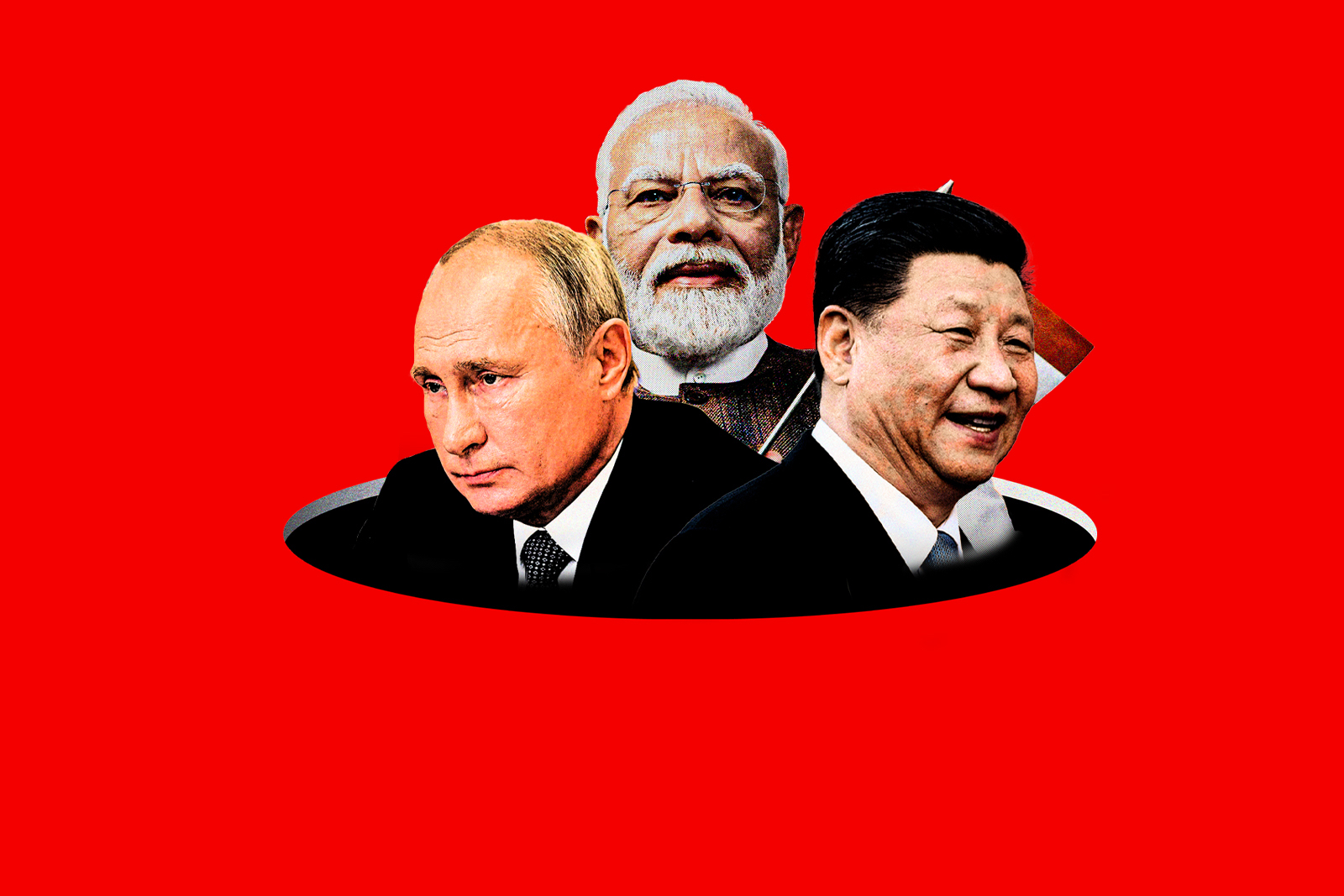
BRICS Has High Hopes for a New Economic World Order
The BRICS alliance is constantly changing and now seeks to redraw the world order regarding country blocs and the power it has to influence global trade.
Founded by Brazil, Russia, India, China, and South Africa, the BRICS alliance now includes Iran, Ethiopia, Egypt, and the United Arab Emirates.
There is talk however about India’s potential exit from BRICS, primarily due to its disagreements with China over the direction and expansion of the alliance. India is particularly wary of China’s push to rapidly expand the organization, a move India sees as potentially diluting its influence within the group and growing Beijing’s strategic dominance. The concern isn’t just about influence but also about the broader implications of BRICS’ expansion on global geopolitics and the existing international order.
India and China have vastly different visions for BRICS. India aims to focus the group on cooperation among developing countries to address global challenges such as climate change and to reform the international economic and financial system without necessarily taking sides in the rivalry between the United States and China.
On the other hand, China envisions BRICS as a platform for promoting its geopolitical agenda, which includes initiatives like the Belt and Road Initiative and a more explicit anti-U.S. stance. This divergence creates a fundamental conflict within BRICS about its future direction.
India’s cautious stance on BRICS expansion is driven by concerns that new members would primarily align with China, further enhancing Beijing’s influence within the group. The inclusion of countries like Indonesia, Saudi Arabia, and Egypt into BRICS is seen by some as potentially shifting the bloc’s dynamics in a way that could reduce India and Brazil’s relative weight. This scenario is particularly concerning for India, which seeks to maintain its influence and ensure the bloc remains a constructive force in global affairs.
India’s recent tilt towards strengthening its relationships with Western countries, including the United States, Japan, Australia, and the European Union, has been noted as indicative of its outlier status within BRICS. This shift towards the West, especially through active participation in the Quad security dialogue, underscores a strategic divergence between India’s interests and the paths being pursued by other BRICS members, especially China and Russia, who are interested in creating a new world order more aligned with their interests.
The tension within BRICS, particularly between India and China, raises questions about the group’s cohesion and future direction. While there’s no explicit indication as of yet that India is seeking an exit from BRICS, its reservations about the bloc’s expansion and the strategic direction underlined by China’s influence highlight significant challenges that need to be addressed to maintain unity and effectiveness as a collective.
Even if India exits the alliance, several developing countries in Asia, Africa, and Eastern Europe are looking to join the BRICS alliance in 2024. South African Foreign Minister Naledi Pandor confirmed recently that around 36 countries have formally applied to join BRICS this year. Most recently, Cameroon has thrown its hat in the ring in the hopes of joining the alliance.
In addition to new members, a new initiative led by Russia within the BRICS alliance to promote de-dollarization in Africa, and by extension globally, aims to shift international trade away from the U.S. dollar towards local currencies, including the Russian ruble. This strategy, heavily promoted by President Vladimir Putin, is not just about altering the mechanics of trade but is fundamentally about reshaping global financial dynamics. The broader vision shared by the BRICS countries is to diminish the global economy’s reliance on the U.S. dollar, thereby fostering a new financial era that empowers developing economies and their currencies.
This shift poses significant challenges to the U.S. dollar and, by extension, the American economy. Historically, the dollar’s status as the world’s primary reserve currency has allowed the United States to borrow at lower costs and gives it considerable leverage over global economic governance. This advantage comes from the demand for dollars worldwide, enabling the U.S. to run higher deficits with fewer economic repercussions and maintain its currency’s value despite significant national debt levels.
However, a successful move towards de-dollarization could reduce global demand for the U.S. dollar, potentially leading to a surplus of dollars returning to the U.S. This inflow of dollars could drive up inflation, as the increased money supply within the domestic economy may not be matched by a corresponding growth in goods and services, leading to higher prices.
The scenario becomes particularly concerning if it triggers hyperinflation, a condition characterized by very high and typically accelerating inflation rates, severely eroding the currency’s purchasing power. Hyperinflation can devastate economies, leading to widespread poverty, social unrest, and a breakdown of financial order. For the United States, a country with significant debts denominated in its currency, this scenario could strain its financial systems, affecting its ability to import goods, fund deficits, and maintain economic stability.
Furthermore, the push for de-dollarization reflects a strategic move by BRICS nations to challenge the existing global financial order and reduce Western, particularly American, influence over global economic affairs. It represents an attempt to create a more multipolar world economy where emerging markets and developing countries have greater autonomy and influence.
While the drive towards using local currencies in international trade is presented as an opportunity for developing economies to assert more control over their financial destinies, it simultaneously poses a profound challenge to the U.S. economy.
The idea of BRICS nations becoming self-sufficient and more powerful is fine, but the U.S. will need to make adjustments to ensure it remains economically stable in the face of a changing global economic order. The success of BRICS nations could herald a new era of economic relationships where the U.S. dollar no longer dominates, fundamentally altering the landscape of international trade and finance.
